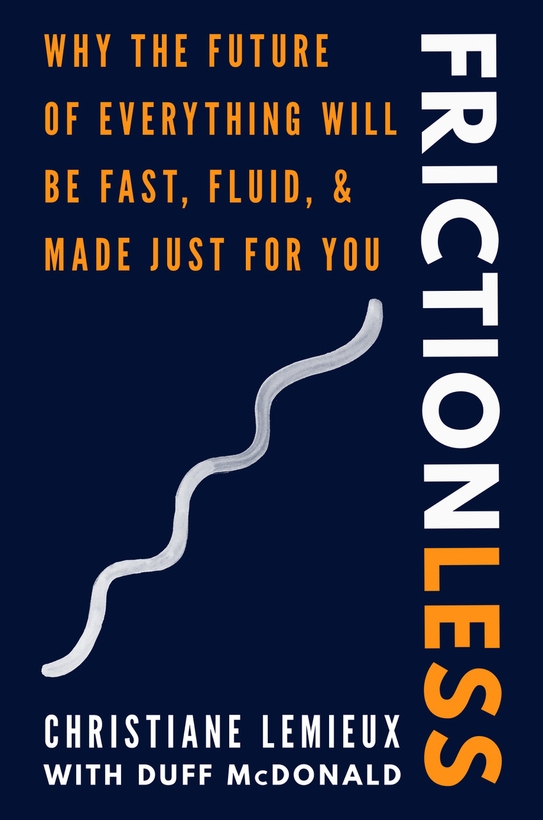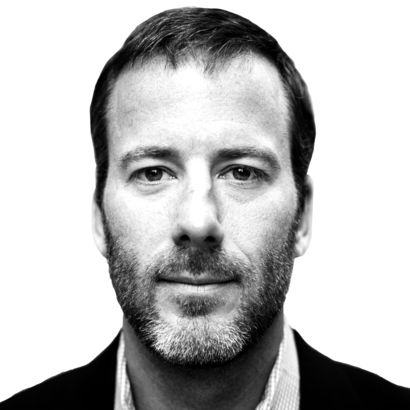Timing, as we all know, is everything. When you pitch a book to a publisher, part of the bet that you—and they—are making is that you can predict the future. Will this idea be interesting to readers two years from now?
You know what makes it even harder? When you aren’t even sure what your idea is in the first place.
When my old friend Christiane Lemieux approached me about writing a book with her in 2018, her thesis was pretty vague—she wanted to write a book about the future of business. What future? Well, she didn’t know yet. She wanted me to join her on a journey toward finding that out. The plan was to talk to as many people as we could find who seemed to be creating that future, and in the process, figure it out ourselves.
Uncharted Territory
That’s a novel way to write a book—your publisher has to have faith that you can find the story. But I’ve known Christiane for nearly 35 years, and I knew that spending a year with her would be worth the time regardless.
Christiane is a design dynamo. She founded DwellStudio, built it into a highly influential brand, and then sold it to online furniture juggernaut Wayfair in 2013. She spent two years there as executive creative director and then left to start another company, the custom-furniture-on-demand-maker TheInside.com, in 2018. She’s authored two books on design—The Finer Things and Undecorate—has been a judge on Ellen DeGeneres’ show—yes, we know—and just launched her European lifestyle brand, Lemieux et Cie, at U.S. retailers nationwide and in a launch partnership with Anthropologie stores. She debuted the line in stores, as opposed to just online, to help bolster the retail landscape during the economic stress of the coronavirus. In other words, she’s a powerhouse.
But that’s just a résumé. I love Christiane. She’s brilliant, insightful, and funny as all get-out, which made the project irresistible. That said, I tried to bail once, saying there wasn’t enough money in it for the both of us. But Christiane is so charming that she was able to convince me to say yes just a few months later, for about the same amount of money. What can I say? I love spending time with fascinating and energetic people.
She wanted to write a book about the future of business. What future? Well, she didn’t know yet.
It was as interesting as we could have hoped for, and for months our enthusiasm for the project kept rising, even if clarity over our eventual thesis did not. But you know how sometimes, everything shifts, as in an instant? Well, on October 12, 2018, when we were walking out of an interview with Ryan Simonetti, C.E.O. of events, workspace, and hospitality provider Convene, in downtown Manhattan, we got so excited walking to the subway that we had to stop and stare at each other.
“Are you feeling what I’m feeling?” she asked me.
“Yup,” I replied.
“It’s all about time,” she said. “And being frictionless.”
“Exactly,” I replied.
We had put our finger on the pulse of business, and it felt frictionless, as if all the bottlenecks had been removed. Everybody we spoke to was doing something to remove friction in some part of their business—with their customers, their suppliers, their employees, or their communities. But it was bigger than that—the forces of frictionlessness don’t recognize boundaries such as those surrounding a company. The people we spoke to were finding ways to remove friction from their organizations and in the ways they compete.
It definitely seemed timely in 2018, because we were writing about things that were happening in 2018. The only question was whether we had anything interesting to say about the future—only time would tell. We wrapped up writing in late 2019 and coming into 2020 were looking forward to the June release of Frictionless: Why the Future of Everything Will Be Fast, Fluid, and Made Just For You.
An editor once told me that the worst thing for a nonfiction book is for a war to break out when your book was due to be released. That didn’t seem too likely in early 2020, but you never know. Anything can happen.
Including the coronavirus.
Publisher’s Hiccup
Like everyone on this earth, when the coronavirus hit, our day jobs receded into the background as we came to grips with our new reality. I thought the book was going to be a casualty of bad timing. The coronavirus is a war against an invisible enemy. Our book, I thought, was going to end up being pretty invisible, too. Of course, I didn’t tell Christiane that. She’s an eternal optimist and wouldn’t hear of such a thing. She’s also a realist, though, and when Black Lives Matter turned into a movement, she told me to sit tight, shut up about our little project, and hope that our culture could rise to this historic moment. Our book, in other words, was beside the point. She was right.
The thing about reality, mind you, is that it isn’t a single-topic affair. The virus is still raging and the economy is falling apart. Our politics are the usual mess, and the idea that we might ever return to something resembling the pre-coronavirus past seems more and more remote by the day. So what now?
As we started to contemplate that question in July, we discovered something so unexpected that it literally tickled: our book had predicted the future. We wrote it in 2018 and 2019, but we were talking about now. More importantly, while we were writing about business at the time, we were describing life itself here, in July 2020.
What do we mean by that? We mean that now—the eternal now—is and always will be uncertain. Change isn’t just something that happens sometimes and sometimes not, even if we sometimes delude ourselves into thinking we’ve got the future all figured out. Change happens. Old systems die and new ones are born. It’s always happening. This now is not different from any other now in that regard. Anything can happen. The process of creation and destruction is an essential part of life, and we do ourselves a disservice when we get stuck on what is ending and miss out on what is becoming. There is no objective reality; there is simply an agreed-upon narrative. And we get to decide what we want that narrative to be. It doesn’t have to be one of control and fear of loss. It can be one of embracing uncertainty and identifying possibility.
Old systems die and new ones are born. It’s always happening. This now is not different from any other now in that regard.
How can we best grasp our new reality? We cannot do it with numbers or models. We can only do it by getting in the flow and letting the beauty of uncertainty take us where it’s going to, without resistance. Resistance is friction, the goal is frictionlessness.
How do we get there? Focus on the things that you love. That’s where you will find the flow. What do you love about the things that are happening to you? What do you love about the people around you? What do you love about the new you, the one that showed up in quarantine, out of nowhere, and took the reins from the old you?
We can let the past go. We can get rid of the old, and usher in the new. Christiane just resigned from the board of TheInside.com, the company she founded, because it’s been taken over by a cabal of venture capitalists whose best ideas are to compare this month to last month and to run ads on Facebook and Google. But that’s not creativity, that’s trying to find value in a spreadsheet. And as much as it hurts me, from a patriotic standpoint, to say this, I will do so nonetheless: value creation is not a hockey stick. If you’re going to create things that people love, you need soul, not just money. And the crowd that has taken control of TheInside.com has none of that. We wish them well but make no predictions about their success.
When we wrote our book, we thought frictionlessness was a philosophy of business. We were right. But Frictionless isn’t just about business; it’s a philosophy of life. For many of us, our passions have been upended of late. Some of us never found them in the first place. No matter. It’s time to find some new ones. What tickles you? Find that, and you can use it to tickle others. We wrote Frictionless to showcase people who understand this in the context of business. But business is just the start. It’s time to get frictionless about life itself.
Duff McDonald and Christine Lemieux’s Frictionless: Why the Future of Everything Will Be Fast, Fluid, & Made Just for You is out now from Harper Business

